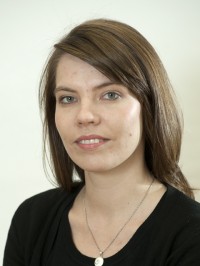Funding: OTKA
Duration: September 1, 2017—August 31, 2019 (25 months)
Political and economic elites’ opinions drive a country’s development course and thus grab most of our attention. Less exposed are artists, scientists and writers—and yet they are as influential in a democracy as the country’s rulers. Their work draws from the population’s mood, contributes to bringing people hope and insights, it points out issues to overcome and solutions to pursue. They can lack such ambitions and still be relevant: culture forms societies from the bottom-up, and their producers unveil the process in art and critiques, a checks and balances equivalent to the media, the civil society or the judiciary. Artists and many other intellectuals are part of the country’s cultural elite, a group within which recognition and talent matter more than capacity to drive political bargains. That’s not to demerit political or economic elites; trust and cooperation among the three groups contribute more to political stability than most constitutional or formal institutional conventions, but Hungary’s elites seem to have lost both partnership and confidence, according to Luca Kristof’s research hypothesis. What is left is a cultural elite in a crisis.
The researcher’s project aims to examine the cultural elite as it was in 2017 compared to what it looked like in 2009, when the last Hungarian Academy of Sciences’ cultural elite survey was released. Luca also plans on redoing that survey. Although she hasn’t collected results yet, she believes the political establishment has exerted more influence on culture since 2010. Before that year, a member acceded to the group because of her education or reputation. But the government has redistributed cultural positions and resources lately, something that undermined the group’s old networks and composition.
While reputable intellectuals are better armored against a politician’s decision because their influence comes from society’s recognition, cultural elite members occupying public positions are easier to be replaced by the political power. The result is an uneven elite, whose members circulate according to different criteria. Luca noticed that when she tried to interview a theater director. He told her that he needed the government’s approval to speak out.
Her project is innovative because is the only one studying cultural elites through quantitative methods, but the political polarization made this task more challenging. The researcher did a thorough mapping of the group’s representatives from each political spectrum. She has conducted 45-minute surveys with them, which she will supplement with 20 semi-structured interviews. In a final step, she will evaluate her findings using narrative analysis—a method that will allow her to examine how life stories are interwoven and help form the Hungarian culture.
Having a better understanding of today’s shape of the cultural elite and how it relates to other elite groups has societal impacts: one can access the quality of the country’s democracy by looking how elites exert their power over others, shaping them according to their interests. Luca believes this leaves room for autocratic tendencies, and thus her research will be of interest not only in Hungary but also in other European democracies. She intends to present her finds at two international conferences in 2019; one is the European Consortium Political Research General Conference, in Wroclaw, Poland; and another is the European Sociological Association Conference in Manchester, the UK. Luca aims to publish journal articles with the Poetics (Elsevier) and the Cultural Sociology (Sage) journals. In Hungary, she will disseminate her conclusions with the peer-reviewed journals Szociológiai Szemle, Politikatudományi Szele and Socio.hu.
Media coverage:
« Le Fidesz n’a pas de culture alternative forte à proposer »
Alföldi, Nádas és Enyedi a legtekintélyesebb magyarok listáján
Principal investigator (PI):
 |
Luca Kristóf Research Fellow Researcher profile page Contact the PI |












